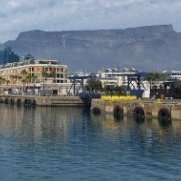BBC Faces Backlash Over Terminology in Hamas Coverage
-
Recently Browsing 0 members
- No registered users viewing this page.
-
Topics
-
Popular Contributors
-
Latest posts...
-
32
Crime Indian Tourist Assaulted in Pattaya by Ride-Hailing Rider
Well we often tell people they need to get out more on this forum. In your case, perhaps not! -
15
Ship carrying 200 people hits the Brooklyn Bridge as search and rescue operation underway
I posted 19 hours ago, and at the time, that was the only info available, 'ship hit bridge', not other info, 'power failure' & etc. Any vids I noticed, simply showed the accident with no real info. Unavailable information, is not ignorance. Same as the lack of info in the OP. What ever makes you feel better. Have a nice day. -
26
THAILAND LIVE Thailand Live Monday 19 May 2025
Lightning Strike Kills Two Men in Udon Thani Picture courtesy of Workpoint Two men lost their lives after being struck by lightning while building a fishing raft in the middle of Nong Han Lake, located between the Kumphawapi and Ku Kaeo districts of Udon Thani Province. Full story:https://aseannow.com/topic/1361035-lightning-strike-kills-two-men-in-udon-thani/ -
1
Crime Pickup Truck or Sardine Can? Myanmar Migrants Crammed into Cabin on Illegal Journey to BKK
And none of them were wearing safety belts. -
180
So where did you meet your Thai girlfriend or wife?
By being a father to them for any times you have them. You don't divorce your children. -
0
Accident Lightning Strike Kills Two Men in Udon Thani
Picture courtesy of Workpoint Two men lost their lives after being struck by lightning while building a fishing raft in the middle of Nong Han Lake, located between the Kumphawapi and Ku Kaeo districts of Udon Thani Province. The incident occurred at approximately 18.00 on 17 May. The Kumphawapi Public Welfare Foundation Rescue Unit received an emergency call from local medical services reporting that two villagers had been struck by lightning in the area of Ban Chalae, Kumphawapi district. Rescue teams braved torrential rain and ongoing thunderstorm activity as they navigated they boats into the centre of the lake. Upon arrival, both victims had already succumbed to their injuries. They were later identified as Mr Wiran aged 68, a resident of Ban Mueang Phruek in Chalae subdistrict, and Mr Thanawut aged 46, from Khon Sai subdistrict in Ku Kaeo district. Rescue personnel retrieved the bodies and they were transported to Kumphawapi Hospital, where police investigators and forensic doctors conducted post-mortem examinations. The lightning strike occurred while the two men were in the process of constructing a sadueng, a type of bamboo raft platform used to support large fishing nets, in preparation for fishing during the rainy season. Mr Wiran’s wife, who had accompanied the men and waited on the shore, was left unharmed but severely traumatised by the event. Mr Phairi 75, a relative of the deceased, described the moment of the tragedy: “There was thunder, but no rain yet. Suddenly, there was a single lightning strike, just one. It hit them both directly while they were working together on the raft.” Local officials have urged residents to take extra precautions during the rainy season, particularly when working in open or water-bound areas during storms. Adapted by Asean Now from Workpoint 2025-05-19.
-
-
Popular in The Pub
-










Recommended Posts
Create an account or sign in to comment
You need to be a member in order to leave a comment
Create an account
Sign up for a new account in our community. It's easy!
Register a new accountSign in
Already have an account? Sign in here.
Sign In Now